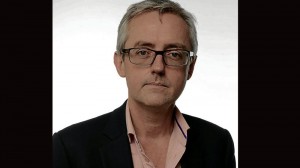Decades of racial discrimination in South Africa and the aftermath of apartheid are vividly recalled by key figures and observers in the History documentary “Miracle Rising: South Africa,” filmed and completed within the span of a year.
“It’s more ambitious than anything we’ve done before,” said Adam MacDonald, vice president of A+E UK, a broadcaster representing History and other related channels.
In an exclusive phone interview with the Inquirer, MacDonald discussed the ambition behind the project, which required the participation of numerous political figures and celebrities.
Logistical challenges
“There were a few challenges along the way, which were merely logistics more than anything else,” MacDonald clarified. “The extraordinary thing we found was that all our participants went out of their way to find time to speak about it. They all bought into the ambition of the documentary and wanted to pay testament to the extraordinary story themselves!”
It took time to locate all the participants and to film the set pieces, but the wrangling of various disparate elements went smoothly and mostly according to plan, revealed MacDonald.
“We didn’t want a narrator, a single voice telling the story,” he said. “We wanted to construct the narrative from all the interviewees, which is not often done in documentaries and it’s incredibly time-consuming… it was a massive kind of three-dimensional jigsaw puzzle that we organically put together over the course of the production.”
Old images illustrating the terror and conflicts resulting from apartheid, a South African government policy separating whites and nonwhites, are shown between interview clips. Interviewees include rights activist Desmond Tutu, former United States President Bill Clinton, and entertainment personalities Oprah Winfrey, Bono, and Whoopi Goldberg, among others.
Big themes
“We had to be focused on choosing the right people to speak to,” MacDonald said. “What we focused on was that period between the release of (political prisoner) Nelson Mandela in 1990 and the elections in 1994. We used that to explore the bigger themes of leadership, forgiveness and the power of negotiations. That allowed us to focus on people who knew Mandela very closely, or were involved in that moment in time.”
“Miracle Rising’s” timing is ideal as well, according to MacDonald: “The original idea came because there’s awareness that the South African democracy has just come of age; 18 years ago, the first elections happened. There are South Africans reaching adulthood now who weren’t there during these struggles… While we didn’t ever presume that what happened was a blueprint to achieve peace around the world, we thought that it was very prescient and meaningful to just re-analyze what happened and to share that story with the world.”
The two-hour “Miracle Rising,” he added, is enhanced by carefully chosen and powerful images and music from the era. “Blending those things together took a huge amount of craft and skill; that’s what produced this really beautiful, epic piece of storytelling.”
History’s “Miracle Rising: South Africa” debuted last Tuesday and will air again tomorrow (8 p.m.), Feb. 24 (8 p.m.) and Feb. 25 (1 a.m.).
